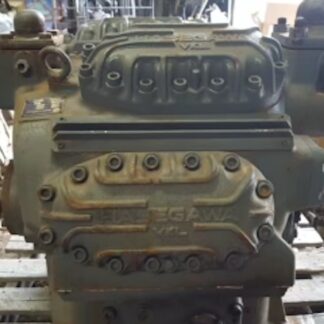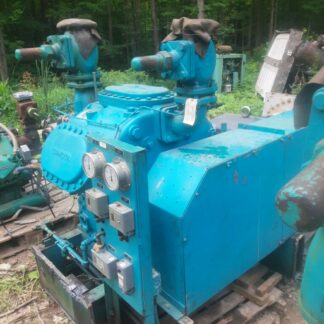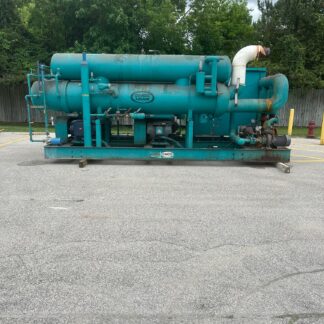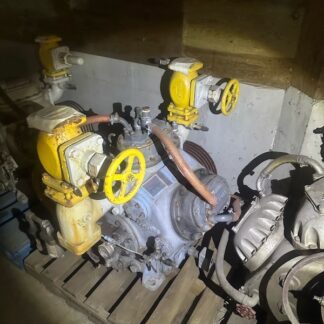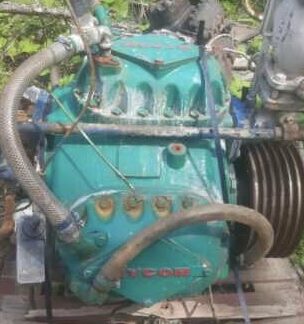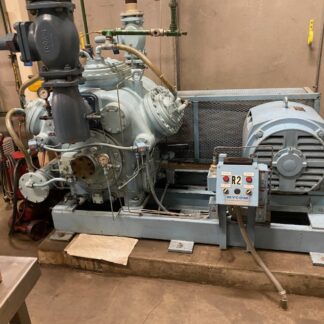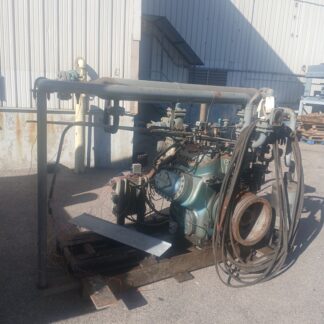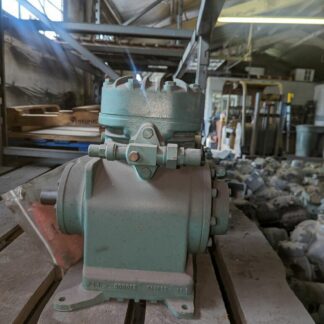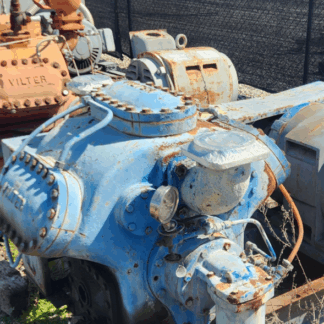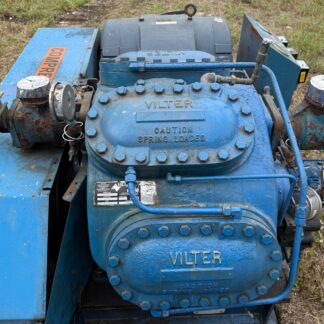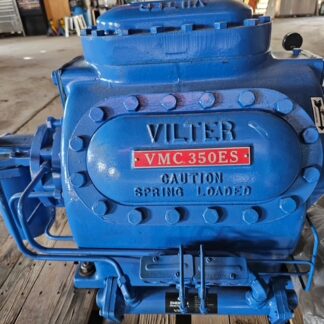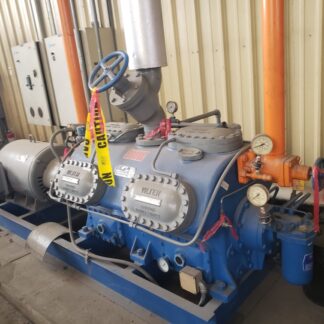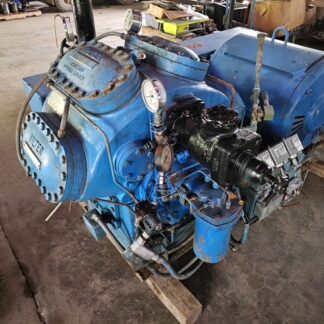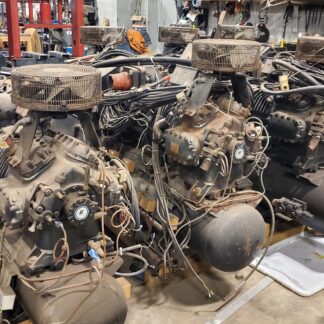Buying & Selling Used Industrial Refrigeration Reciprocating Compressors
When purchasing used compressors, you can benefit from cost savings and reliable performance. Used compressors are often available at a fraction of the cost of new ones, allowing you to save money while still getting a quality product. These compressors have already been tested and proven to work, so you can expect them to perform reliably.
With used compressors, you also have the advantage of knowing their performance history. This means you can assess their previous usage, maintenance records, and any repairs that have been done. This information can help you make an informed decision and choose a compressor that meets your specific needs.
Factors to Consider When Purchasing a Used Compressor
Consider these key factors when purchasing a used compressor.
First, assess the overall condition of the compressor. Look for any signs of wear and tear, such as rust or leaks.
Second, check the maintenance history of the compressor. It’s important to know if regular maintenance has been performed and if any major repairs have been done.
Third, consider the age and usage of the compressor. Older compressors may require more frequent repairs and have a shorter lifespan.
Fourth, research the brand and model of the compressor. Some brands are known for their reliability and durability.
Finally, compare prices from different sellers to ensure you’re getting a fair deal.
Taking these factors into account will help you make an informed decision when purchasing a used compressor.
Essential Maintenance Tips for Used Industrial Reciprocating Compressors
To ensure optimal performance and longevity of your used industrial reciprocating compressor, it’s crucial to prioritize regular maintenance.
By following a few essential maintenance tips, you can keep your compressor running smoothly and avoid costly breakdowns.
First, make sure to regularly check and replace the air filters. Clogged filters can inhibit airflow and decrease compressor efficiency.
Additionally, inspect the belts and pulleys for any signs of wear and tear, and replace them if necessary.
Regularly lubricating the compressor’s moving parts is also vital to prevent friction and ensure smooth operation.
Finally, don’t forget to regularly drain the condensate from the compressor’s tank to prevent corrosion and maintain optimal air quality.
How to Evaluate the Performance and Condition of a Used Compressor
To evaluate the performance and condition of a used industrial reciprocating compressor, you can start by examining its overall functionality and external components.
Begin by checking if the compressor starts up smoothly and runs without any unusual sounds or vibrations. Inspect the belts, pulleys, and motor for signs of wear or damage. Ensure that the cooling system is working effectively and that the compressor doesn’t overheat during operation.
Assess the condition of the pressure gauges and controls, making sure they’re accurate and responsive. Additionally, examine the compressor’s oil levels and quality, looking for any signs of contamination or excessive wear.
Finally, don’t forget to inspect the valves, pistons, and cylinder heads for any signs of leakage or damage.
Finding the Right Used Compressor for Your Industrial Needs
When searching for a used compressor to meet your industrial needs, prioritize finding a reliable and efficient machine. Look for a compressor that has been well-maintained and has a good track record of performance. Consider the specific requirements of your industry and choose a compressor that can handle the workload.
It’s important to assess the condition of the compressor, checking for any signs of wear and tear or potential issues. You may want to consult with experts or seek recommendations from trusted sources to ensure that you find a compressor that’s suitable for your needs.
Take the time to research and compare different options, considering factors such as price, features, and warranty. By finding the right used compressor, you can ensure that your industrial operations run smoothly and efficiently.
Frequently Asked Questions
Used industrial reciprocating compressors typically consume more energy compared to new compressors due to wear and tear.
It's important to consider energy efficiency when purchasing used equipment to minimize long-term operational costs.
When operating a used industrial reciprocating compressor, it's important to take specific safety precautions.
- Ensure proper ventilation.
- Inspect for leaks.
- Wear appropriate protective gear.
- Follow manufacturer guidelines for maintenance and operation.
Used industrial reciprocating compressors typically last for a significant amount of time before major repairs or replacement are needed. However, factors such as maintenance, usage, and environmental conditions can impact their longevity.
Regular maintenance is crucial in ensuring the longevity of a used industrial reciprocating compressor. This includes tasks such as regularly inspecting and cleaning the compressor, checking for leaks, and lubricating moving parts. Neglecting maintenance can lead to increased wear and tear, reducing the lifespan of the compressor.
The usage of the compressor also plays a role in its longevity. Compressors that are used heavily or operated continuously may experience more strain on their components, resulting in faster deterioration. On the other hand, compressors that are used intermittently or for lighter applications may last longer.
Environmental conditions can also impact the lifespan of a used industrial reciprocating compressor. Extreme temperatures, high humidity, and exposure to corrosive substances can accelerate wear and tear on the compressor's components. It is important to consider these factors when installing and operating the compressor to ensure its longevity.
To ensure safety and reliability, used compressors must meet government regulations and certifications.
These standards are put in place to guarantee that the equipment operates correctly and poses no threat to workers or the environment.
Yes, you can modify or upgrade used industrial reciprocating compressors to increase their efficiency or performance.
Conclusion
In conclusion, purchasing used industrial reciprocating compressors can offer several advantages, including cost savings and availability of a wide range of options.
However, it’s important to carefully consider factors such as the compressor’s condition, performance, and maintenance history before making a purchase.
By following essential maintenance tips and evaluating the compressor thoroughly, you can ensure its optimal performance and longevity.
With the right research and evaluation, finding the perfect used compressor for your industrial needs is possible and can greatly benefit your operations.
Refrigeration Equipment Professionals (REP) is a trusted supplier of industrial refrigeration systems and surplus/used equipment, offering compressors, chillers, condensers, evaporators, ice machines, freezers, coolers, pumps, motors, complete plants, and services like purchasing, refurbishing, shipping, export crating, and storage/consignment support. With 25+ years of experience and clients across North America, Latin America, the Middle East, and Asia, we deliver reliable, cost-effective refrigeration solutions worldwide.
